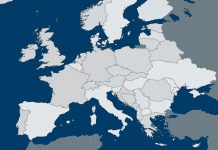By George Friedman
Danish voters have dealt another blow to European integration. It is a small blow, but in this environment a significant one. The issue involved Danish membership in Europol, the European Union’s police agency. Denmark had been exempt from some of the regulator requirements of membership back in the 1990s. The Danish government decided that modifications needed to be made in Danish law in order to bring it into compliance with EU requirements. The impact of these changes would have been to change to some degree the autonomy of Denmark’s self-policing. The government sought to get approval for 22 separate modifications in Denmark’s relationship to Europol, all quite obscure and of no great urgency. It was the European process grinding away. However, the government, which wanted to pass the laws through parliament without subjecting them to direct public approval, wound up with a referendum on the whole process, and lost. More than 70 percent of the public opposed the modification.
There were two parts for this outcome. One part was that the trust in European institutions has declined severely over recent years. The idea of aligning Denmark’s internal policing with the demands of a European agency meant a loss of control over their own policing, as well as potential intrusions into Danish policies and inevitably, since this is policing, into some of Denmark’s criminal laws and processes.
But there was a deeper reason. The changes appeared minor, were highly technical and poorly understood. This very opacity represents one of the challenges to a united Europe. The European bureaucracy is breathtaking in its complexity. Like most bureaucracy, it does not appear to be answerable to anyone simply because even senior politicians don’t know always what they are doing and, most important, very minor laws have booby traps in how the bureaucracy can interpret them. What appears to be a minor adjustment sometimes turns out to be an enormous power grab by Brussels and, worse, a redefinition of how things are done. The very fact that the laws were said to be minor was the problem. It was difficult to understand precisely what the 22 laws meant and impossible to predict how Brussels would interpret them.
The problem of sovereignty is complex. It is not simply a question of nations stubbornly clinging to their authority. The EU and its administrative structure is inherently opaque. Its opacity comes from the complexity of its founding documents, and the complexity of those documents derive from two facts. First, they were essentially treaties negotiated by many governments and the resulting compromises rendered the documents so complex they couldn’t be understood.
Second, and more important, the EU was trying to do the impossible. On the one hand, it was trying to integrate members under a single bureaucratic structure and harmonize the constituent nations. On the other hand, it was trying to preserve the sovereignty of its individual members. Combining all these factors created a system of administration that would make Washington appear the height of transparency. The very process that created the EU, the compromises between nations and between national sovereignty and European integration made the administration of Europe a nightmare. It was not that Europe’s bureaucrats were more fiendish than other bureaucrats. It was that their job was to manage the unmanageable — an incoherent founding. The bureaucrats, genuinely dedicated to the task of administering the apparatus, were constantly encountering regulations that contradicted each other, or that were so vague in the compromise that had been reached, that their intent was absent. The bureaucracy filled the vacuum that diplomacy and intellectual incoherence created.
All of this became evident in the 2008 crisis and its aftermath, and it was compounded by the fact that, being a new entity, the EU lacked the oral tradition, the unwritten protocols collectively called political tradition, to draw on. The EU faces a crisis not extraordinary in its size or occurrence. Financial crises happen regularly under industrial capitalism. But the bureaucracy’s authority was hidden in a mass of regulations that were unknowable by any one person and had not had the time to be tested in courts that would flush out the inconsistencies and compel decisions. Indeed, many of those decisions were not in the hands of European parliamentary members, but rather in the ministries of more than two dozen countries. The system was either paralyzed or the bureaucrats had to freelance.
And, therefore, the distrust of the bureaucracy swelled. Brussels seemed to be generating regulations that were fundamentally changing important matters, and was using small regulations, apparently innocuous, to solve extremely complex problems. It was using what it had to try to do what it taught had to be done. The European system recoiled from the bureaucracy and power flowed back to the capitals of nation-states. Europe shifted from integration to every man for himself.
We see this in the immigration and terrorism crisis, which have merged. Europe is moving to abandon the principle that its internal borders have no more meaning than those between American states. Instead, EU members are resurrecting the old internal borders and passing authority of managing them back to the nation-states. It is said to be a temporary measure, lasting perhaps two years, but in fact, nothing is more permanent than a temporary measure. Just as Europe did not have a unified response to the economic problem, it has moved even further from unity. The more important the issue, the less tendency there has been to allow Brussels to manage it.
It is in this context that the Danish vote is to be taken. Even with the best will, no one in Denmark could be certain how the new laws on policing would be interpreted by the bureaucracy. They were being asked to approve of measures called minor, whose meaning, viewed naively, might have no relationship to how they might ultimately be administered. And given the opacity of Brussels, there was no system guaranteeing Denmark the right to interpret later what they had agreed to.
The Danish vote shows the depth of unease with the European project. It is not simply Greece that resists, nor Britain, whose own referendum will be defining. But even a tiny country, not suffering the grievous problems of southern Europe and closely linked to Germany, lacks enough confidence in a European process that it will block the EU by overwhelming numbers, rather than take a bet that it would all work out.
It is in the Danish vote where you can see most clearly what is tearing Europe apart. The manner in which Europe was created has generated a complexity that is beyond understanding and a bureaucracy that, no matter how it tries to follow the law, must fill in the blanks on its own. The Danes no longer feel they can risk that happening. As this feeling spreads in Europe, and the borders re-emerge — and the signs saying “passport control” sprout on Europe’s highways – Europe has reached a point from which there is no turning back. No one will vote for a simple constitution of a few pages that creates a more perfect union. They do not agree on fundamental things. And few are prepared to allow Europe to continue as it is, except for the most committed Europhile. And this is the core crisis of Europe, driving everything else.








 Special Collection – The Middle East
Special Collection – The Middle East